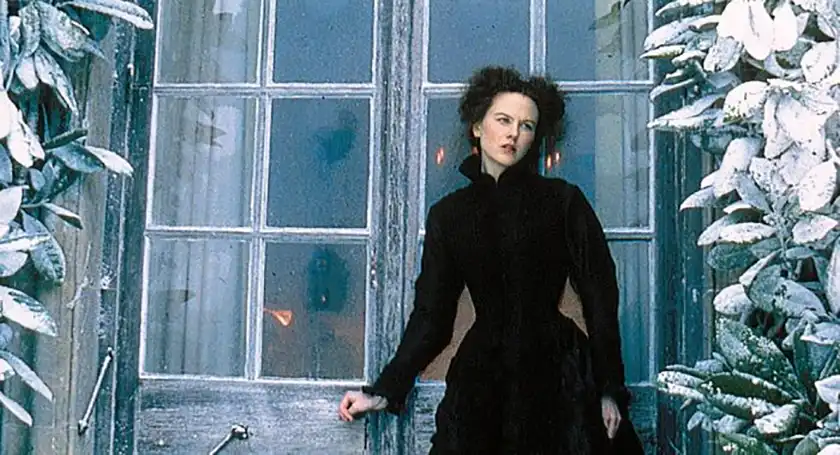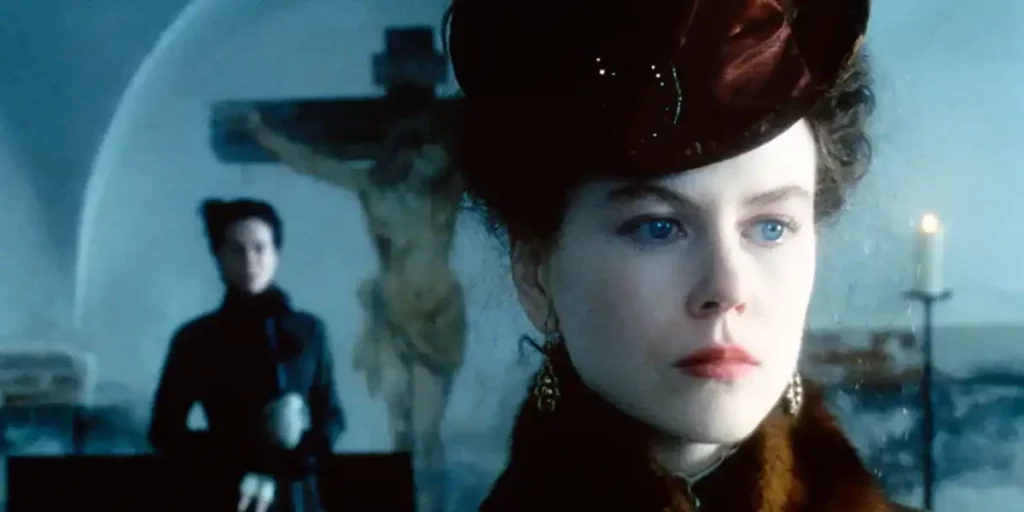Jane Campion’s ambitious Henry James adaptation The Portrait of a Lady is her most underrated film, sporting a magnificent performance by Nicole Kidman, gorgeous visuals and crushing pathos.
Following up a Palme-d’Or winner isn’t an easy task. I wish I was alive to see the reaction to the announcement that, after directing the spellbinding The Piano, Jane Campion (The Power of the Dog) would be adapting one of the English canon’s greatest ever novels, in a much more low-key production than her previous hit. The Portrait of a Lady’s opening is truly striking: young women look into the camera while we hear them talk about the ecstasy of being kissed by someone you love. It’s not difficult to see even a minute in why the film was so disliked at release, with its centring of emotion and ethereal atmosphere, but it’s a film that rewards those that stay with it.
Isabel Archer (Nicole Kidman, Big Little Lies) is a confident young American lady on the search for a husband. She seems to have some idea of what she wants, and has turned down several suitors, but soon meets Gilbert Osmond (John Malkovich, Burn After Reading), an intelligent widower, who she falls for. Despite the advice of her cousin, Ralph Touchett (Martin Donovan, Special Ops: Lioness), who can already see Gilbert’s domineering and abusive nature, and is concerned that she will be unhappy in said marriage, she quickly joins him in marriage. The minute they are married, however, the abuse begins.
Henry James has been adapted by a lot of filmmakers, including Bertrand Bonello, Iain Softley, Merchant-Ivory and even Jacques Rivette. James was an American that lived in Sussex, and many of his books explored cultural differences between the New World and the Old; accordingly, much of The Portrait of a Lady is set in Florence. Both Isabel and Gilbert are immigrants from the United States, and Isabel has recently moved over to Italy from England. Both are foreign to their surroundings, but Gilbert is rich enough to live in an enclave that makes his integration limited. Gilbert has a daughter, Pansy (Valentina Cervi, True Blood), who he forbids from leaving the house and whom he wants to force to marry a man she doesn’t even love.
One of The Portrait of a Lady’s greatest strengths is its cast. Nicole Kidman is outstanding as Isabel, showing intelligence, a want for independence but undeniable naivete beneath it all. Barbara Hershey and John Malkovich portray Madame Merle and Gilbert Osmond, who each prey on Isabel’s good nature to take advantage of her, and both excellently hide deceit and malice behind veneers of respectability and manners. Martin Donovan is charming as Ralph Touchett, Isabel’s cousin and de facto best friend, who is enamoured in awe at his cousin’s great qualities. Supporting them are Richard E. Grant, Mary-Louise Parker, John Gielgud, Shelley Winters, Shelley Duvall, Viggo Mortensen and Christian Bale, each one of whom is perfect for their role.

Wojciech Kilar’s score is delicate and ponderous, and Stuart Dryburgh’s cinematography is majestic, smartly using perspective in the vast, beautiful buildings to emphasise Isabel’s ambition yet illustrate her confinement. A particularly striking scene involves the merging of Isabel’s love interests in her mind (and on the screen) as her mind begins to question her new marriage. It is daring choices like this that upset critics at the time, who complained about the film not being ‘faithful’ to the novel. Granted, it’s an adaptation; of course we shouldn’t expect a simple page-by-page retelling of the story. Critics also bemoaned the film’s pace, but the film is not boring for a second; the story is deeply emotional and is all about missed connections and the consequences of our decisions.
The Portrait of a Lady is a measured, intelligent film that does not fit expectations of a simple book-to-film adaptation. Campion’s direction is confident and the liberties she takes only strengthen the film’s emotional resonance. It’s sorrowful and almost Gothic, and features some of the greatest Anglophone actors on top form. Campion’s film is radical but focused and thoroughly rewarding.
The Portrait of a Lady is now available to watch on digital and on demand. Discover more movies in Jane Campion’s filmography with our reviews of The Power of the Dog, The Piano, An Angel at My Table, In the Cut, and Bright Star.

